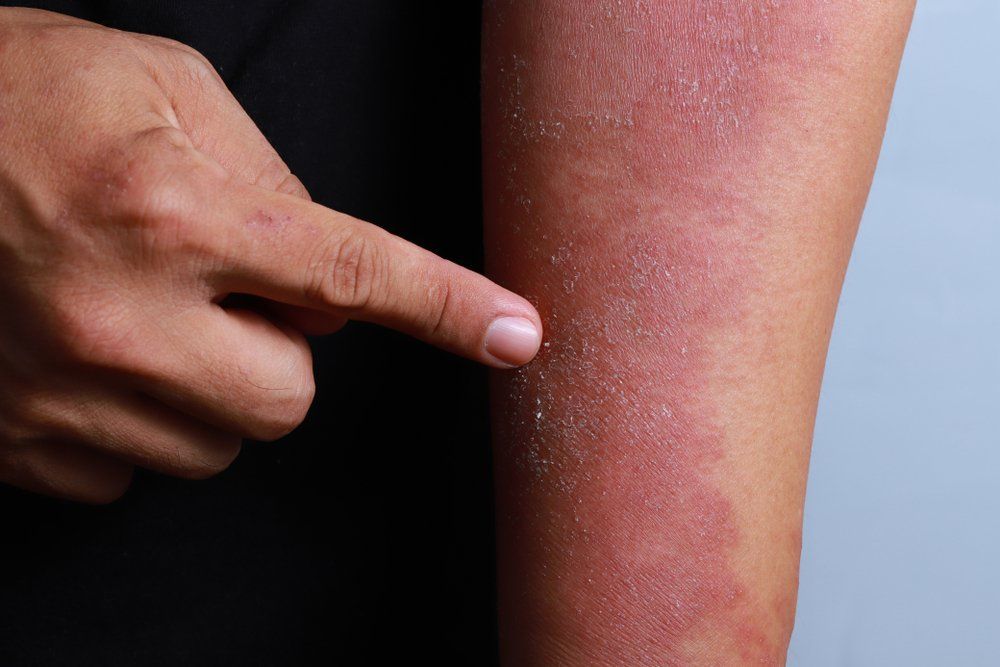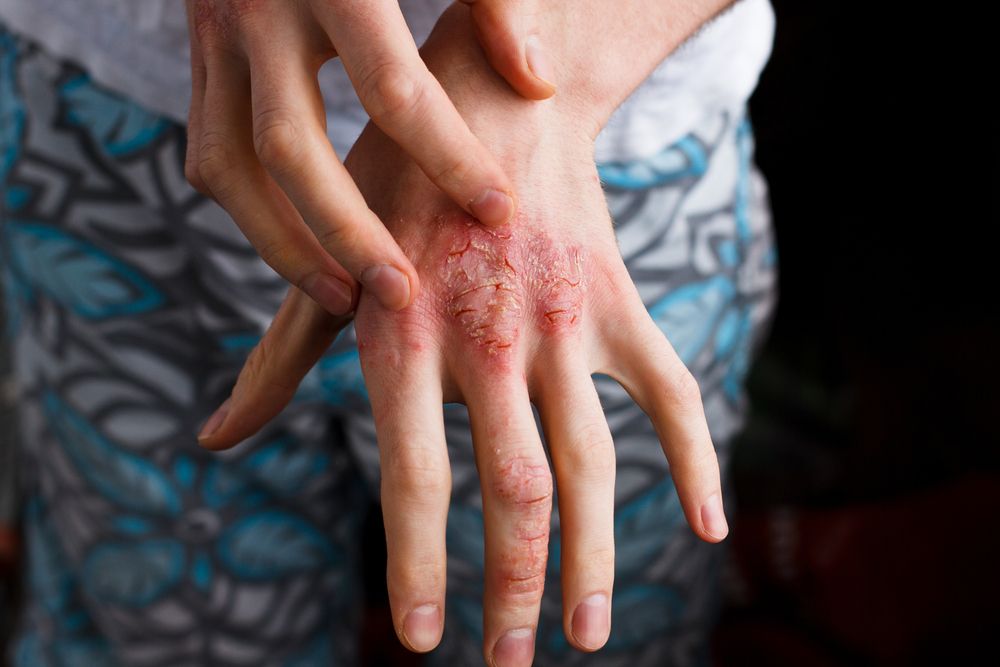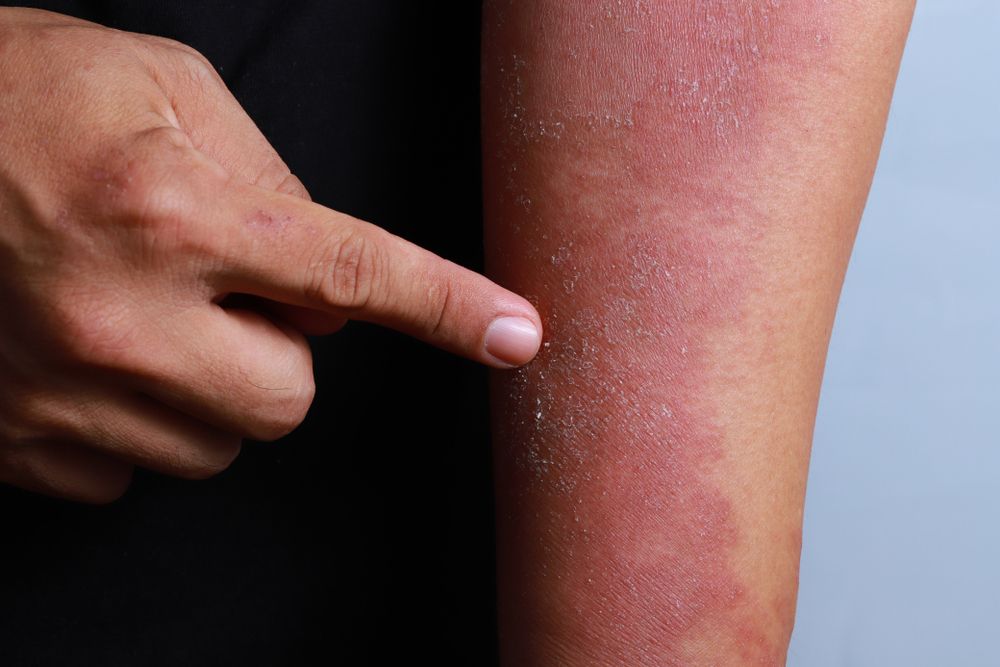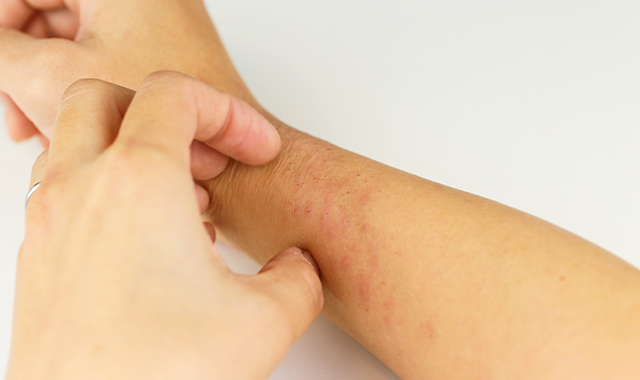- Acne
- Actinic Keratosis
- Aesthetics
- Alopecia
- Atopic Dermatitis
- Buy-and-Bill
- COVID-19
- Case-Based Roundtable
- Chronic Hand Eczema
- Chronic Spontaneous Urticaria
- Drug Watch
- Eczema
- General Dermatology
- Hidradenitis Suppurativa
- Melasma
- NP and PA
- Pediatric Dermatology
- Pigmentary Disorders
- Practice Management
- Precision Medicine and Biologics
- Prurigo Nodularis
- Psoriasis
- Psoriatic Arthritis
- Rare Disease
- Rosacea
- Skin Cancer
- Vitiligo
- Wound Care
Article
Atopic dermatitis pruritis trial fails
Author(s):
Symptomatic relief remains out of reach for many who suffer chronic pruritis. Without drugs specifically approved to treat chronic itch, providers and patients rely on therapies with limited efficacy. Here’s an update of two important clinical trials.
For patients with atopic dermatitis, psoriasis and kidney disease, pruritis flares can manifest to the point of becoming a second chronic condition. It can become debilitating leading to sleeplessness, anxiety, depression and low quality of life. And while there are currently no FDA-approved treatments for chronic pruritis, there are a number of clinical trials underway that show promise.
In April, Menlo Therapeutics announced the results of a phase two trial of serlopitant for adolescents and adults with atopic dermatitis who develop chronic pruritis. While the study of adolescents and adults did not meet its primary or key secondary efficacy endpoints with no statistically significant improvements among the treated and placebo groups, the treated group did show some improvement as compared to placebo.
The study, called ATOMIK, MTI-103, was a multi-center, randomized, placebo-controlled phase two clinical trial conducted at 52 sites in the United States. It included 484 patients who were 13 years old or older with a history of “atopic dermatitis pruritus” for at least six weeks that progressively worsened (WI-NRS score ≥ 6). Patients were randomized into one of three treatment arms: once-daily doses of placebo, 1 mg or 5 mg serlopitant.
In an earlier version of this study that was presented at the European Academy of Dermatology and Venereology Congress in September 2017 and published in May in the Journal of the American Academy of Dermatology (JAAD), researchers reported significant differences in pruritis scores as early as week three, with the largest reduction in pruritus scores among patients taking the once-daily 1 mg or 5 mg dose of serlopitant.
The study included 222 patients from 25 centers. In this study, 55 patients were randomized to placebo; 57 received .25 mg serlopitant; 56 received 1 mg of the drug daily; and 54 received 5 mg serlopitant daily.
At six weeks, researchers reported that patients were sleeping better with insomnia decreasing by 50 percent among groups receiving either 1 mg or 5 mg. In a subgroup analysis of subjects with a history of atopic diathesis, there was a greater reduction in itch than placebo at weeks 1 through 6 and at week 10. Patients receiving 5 mg dose at weeks 4, 5 and 6 experienced better results.
In terms of safety profile, serlopitant performed well in both studies with the most common treatment-linked adverse events being somnolence and diarrhea.
WHAT’S NEXT?
Researchers continue to search for viable treatments for pruritis. They have identified the substance P/neurokinin 1 receptor (NK1R) pathway as key in the development of histamine-independent pruritus. Anecdotally, antagonism of this pathway reduces chronic pruritus.
“There is a significant unmet need for safe, effective treatment for chronic pruritus,” the authors wrote in JAAD.
DISCLOSURES
Menlo Therapeutics funded both studies.
REFERENCE
"Menlo Therapeutics Announces Results from a Phase 2 Trial of Serlopitant for Pruritus Associated with Atopic Dermatitis," April 8, 2018, Menlo Therapeutics news release.
Yosipovitch G, Ständer S, Kerby MB, Larrick JW, Perlman AJ, Schnipper EF, Zhang X, Tang JY, Luger T, Steinhoff M. “Serlopitant for the treatment of chronic pruritus: Results of a randomized, multicenter, placebo-controlled phase 2 clinical trial.” J Am Acad Dermatol. 2018 May;78(5):882-891.e10. DOI: 10.1016/j.jaad.2018.02.030.
Newsletter
Like what you’re reading? Subscribe to Dermatology Times for weekly updates on therapies, innovations, and real-world practice tips.






